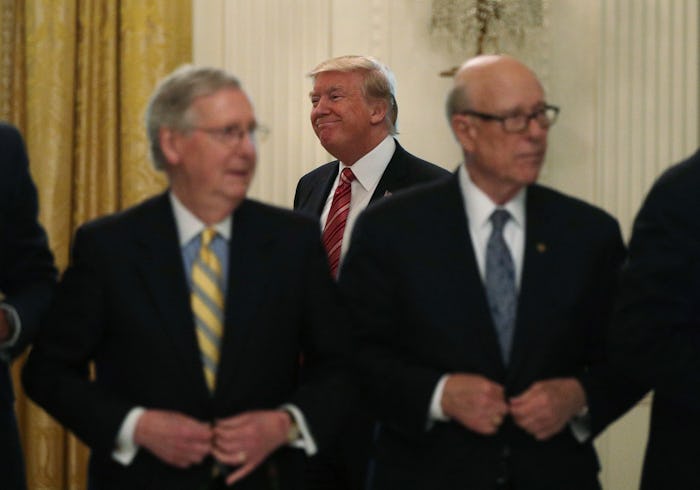Life

Keep Calling Your Senators About The BCRA
On Tuesday, news broke that Senate Majority Leader Mitch McConnell was delaying the vote on the Better Care Reconciliation Act, which would repeal and replace Obamacare, amid growing opposition. Many who were worried about the future of their health care breathed a sigh of relief, but the fight's not over yet. Here's why you should keep calling your senators about the BCRA.
McConnell delayed the vote on the bill, which was mostly written behind closed doors, when it became clear that he did not have the necessary votes to pass it in its current form. Backlash grew after the Congressional Budget Office released its estimate that 22 million people would be uninsured under the BCRA by 2026, prompting many Americans to become worried that the bill would mean deep cuts to Medicaid and rising costs for women's health care, among other negatives.
As it stands now, the bill is not in good shape. But delaying the vote doesn't mean that Republicans are giving up on it. After the July 4 recess, senators will come back and renegotiate, and that's when everything could change — for better or worse.
Remember when Paul Ryan pulled the House's health care bill? Opponents celebrated under the assumption that their health care was safe, but shortly after, Ryan made a few concessions to more conservative representatives, and managed to push the AHCA, or American Health Care Act, through. Something similar could happen in the Senate.
It seems doubtful that a hastily renegotiated bill would do much to address the fundamental flaws with the BCRA. Women, kids, the elderly, the disabled, and people who rely on Medicaid would all still be negatively affected by the health care bill while the wealthiest Americans received tax cuts, unless the bill undergoes a total overhaul.
So here's where you come in. If senators go back to their home states for the recess and don't face a lot of backlash from their constituents, they might conclude that people aren't actually all that worried about the new bill. This might make it easier for them to accept small concessions when they return to Washington, D.C., in the name of a political win. And then a scary health care bill is one step closer to becoming law.
If the Senate bill's failure to protect the most vulnerable Americans worries you, make those daily calls to your senator. Show up at town hall meetings, and share your story. Spread the word to your friends in states with senators who are on the fence about the BCRA. The future of health care could depend on it.